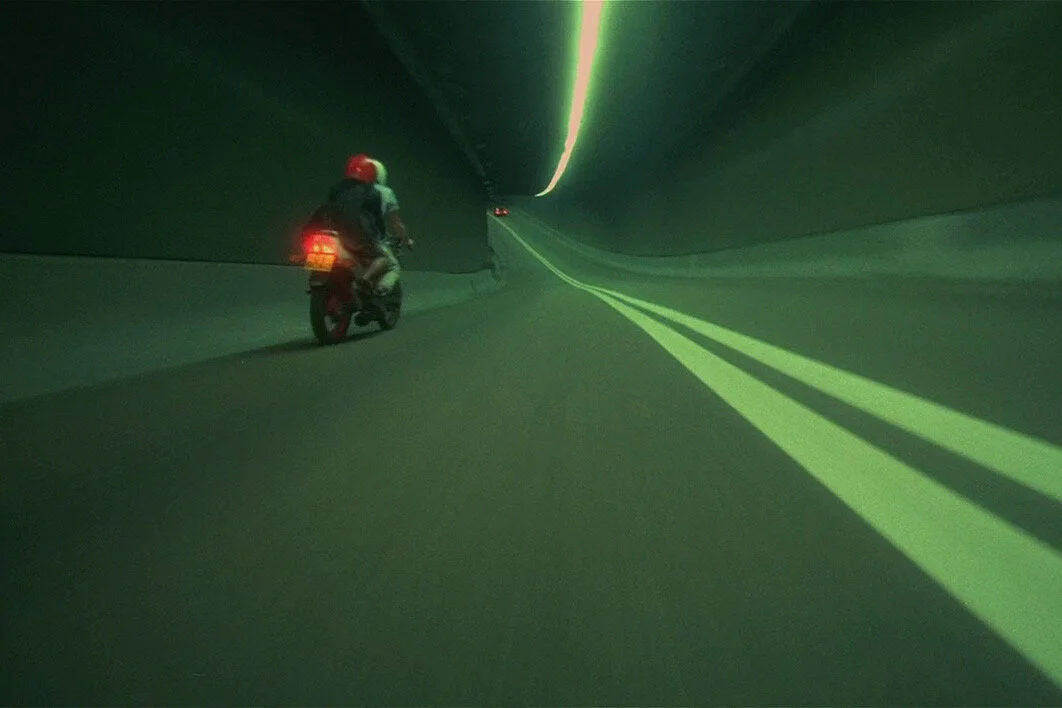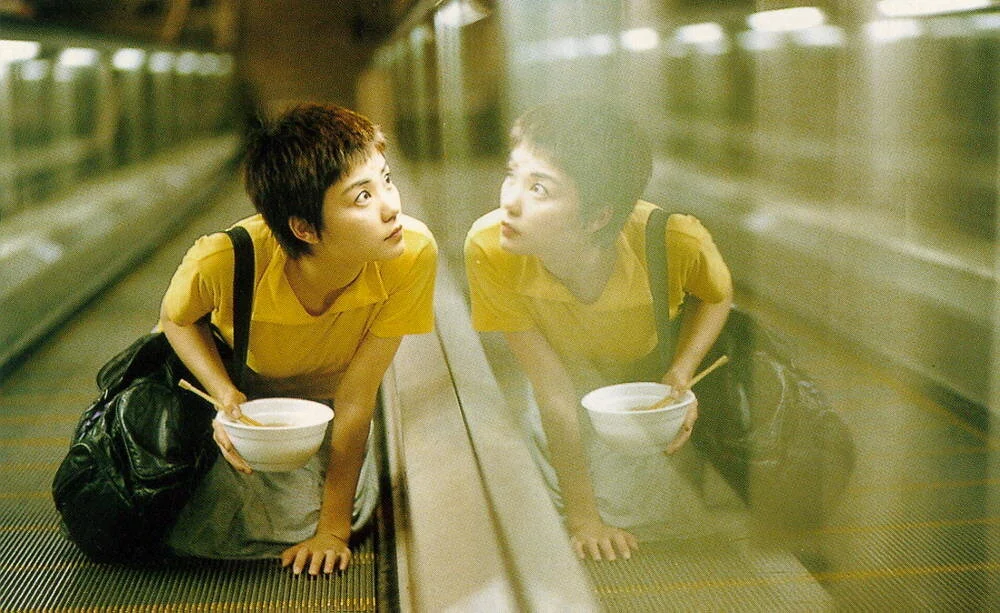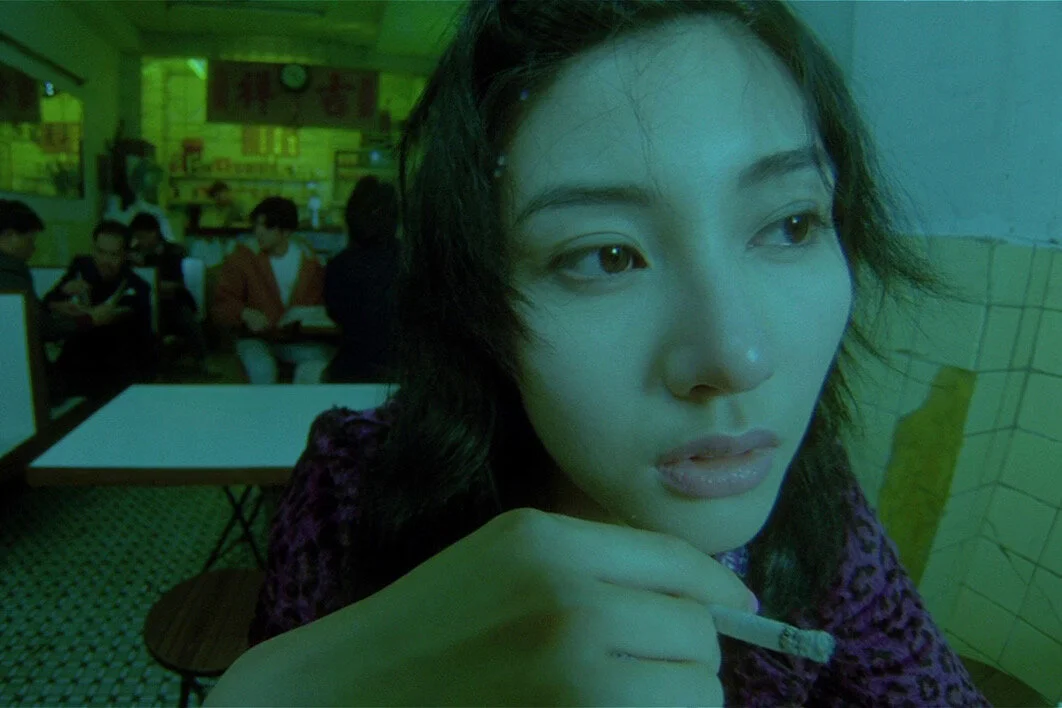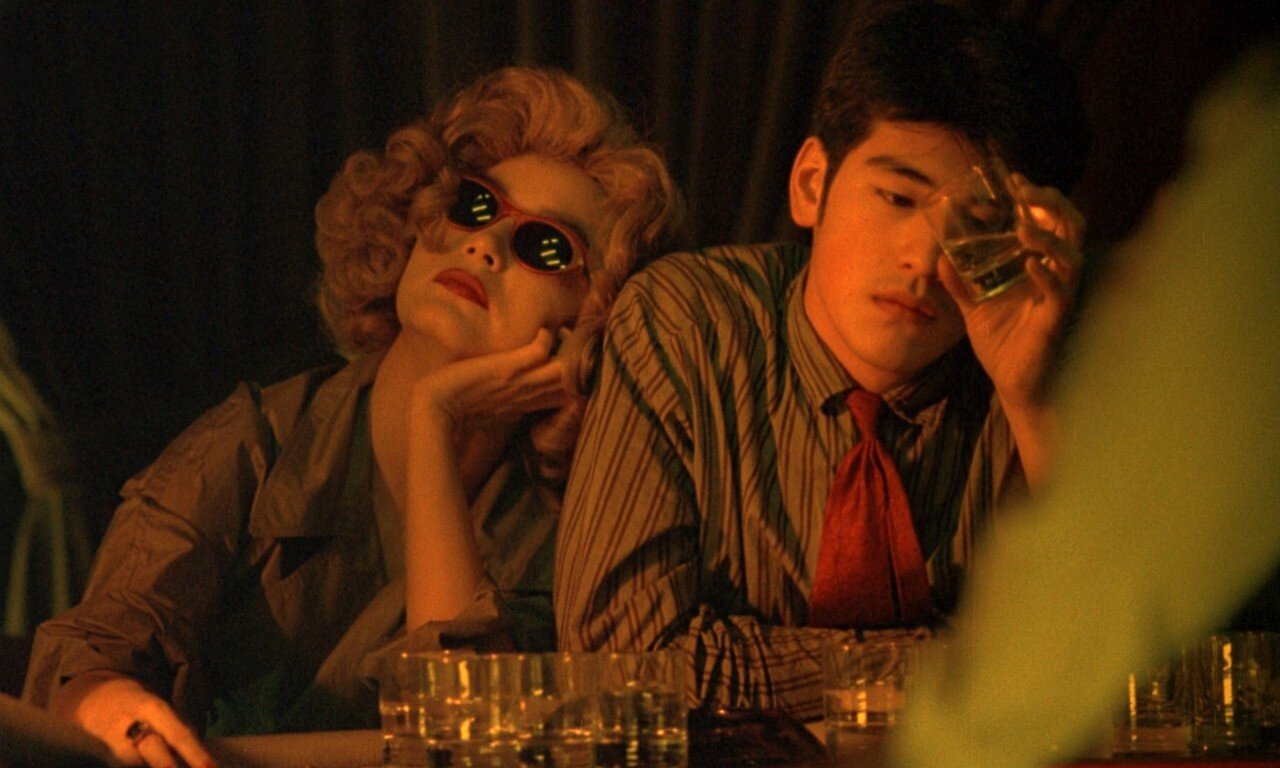WONG KAR-WAI: Melancholy of the heart
FALLEN ANGELS(1995)
Words by James Elliott
The agony of love and yearning has never been expressed with such beauty, as they have in the cinema of Wong Kar-wai.
A neon-drenched ode to the fleeting moments of tenderness that we find in others, and the subsequent pain that is experienced when it is lost.
Wong Kar-wai has created a series of emotionally charged stories that incorporate sensual imagery, dizzy camera work and unconventional story structures. Playing with concepts of time and memory, love and loss, while wrestling with the state of melancholy, Wong Kar-wai remains one of the most influential and exciting storytellers of modern times.
FALLEN ANGELS (1994)
Wong Kar-wai emerged onto the film scene, as part of the Hong Kong Second Wave in the mid-1980s, alongside other young filmmakers, such as Stanley Kwan and Mabel Cheung. Influenced by western filmmaking and culture, these directors rebelled against the traditional films of Hong Kong at the time, drawing influences from the French New Wave of the 1960s. Inspired by filmmakers such as Godard, Wong Kar-wai embodied this sense of fun and total abandonment of rules, while simultaneously drawing from the frenetic energy of Hong Kong, with its martial arts and crime films. This infectious energy and unrelenting quest for finding new forms of storytelling is what separated Wong Kar-wai from other filmmakers of the time.
“I used to think a minute could pass so quickly. But actually, it can take forever.”
HAPPY TOGETHER (1997)
CHUNGKING EXPRESS (1994)
For his debut film, As Tears Go By, Wong Kar-wai created his own unique take on the crime genre, taking the stereotypical, bad-boy gangster and giving him an emotional tenderness. While it was still raw and rough around the edges, his story of missed connections and ill-fated love, laid down the foundation and blueprint of what would make him so successful in his future career.
With his third film Chungking Express, Wong Kar-wai broke into the mainstream and garnered international attention. It was included in a variety of film festivals around the world; and at one such event it was viewed by Quentin Tarantino . Tarantino was so enamoured with the film, that he bought the distribution rights and gave it a limited theatrical release in North America.
Starring actors Tony Leung and Takeshi Kaneshiro, who play two heart-broken police officers, nursing the wounds of their breakups, Chungking Express exhibits all the elements of a classic Wong Kar-wai film. Shot in just a two-month break during the editing process of his epic wuxi film Ashes of Time, Wong Kar-wai produced an almost jazz-like, freeform film. Writing the script in the early hours of the morning, sleeping until the afternoon, before rocking up to set, he showcased his enthusiasm for spontaneity and for giving his actors both creative freedom and trust to create and mould their roles as they saw fit. The result of which was a film that imbued a marvellously positive and quirky romance, with memorable quotes that make you smile to this day.
CHUNGKING EXPRESS (1994)
“If memories could be canned, would they also have expiry dates? If so, I hope they last for centuries.”
Over the years, Wong has been known for his distinctively hypnotic visual style. Alongside his frequent creative partner and director of photography, Christopher Doyle, the two of them create lush and evocative worlds, saturated with colour while jumping between cuts with frantic energy. Likewise with such films as In the Mood for Love, he created a languid sensuality with a hazy, neon-filled ambiance that externalises and gives form to the inner feelings of the characters. Their movement slowed down, and lingered upon, highlights a certain elegance and beauty of movement that is characteristic of his work.
Moonlight director Barry Jenkins, while discussing the influence of Wong Kar-wai, said “Wong Kar-wai does a great job of taking interiority and translating it to the screen, which is something you are taught not to do, in film school…” His Oscar-winning film Moonlight is a clear homage to the influence of Wong, taking the exact compositions of many of his films and even borrowing the track Cucurrucucu Paloma, that was used to great effect in the Wong Kar-wai film Happy Together.
Wong uses camera techniques such as under-cranking, which involves shooting the footage at slower rates in order to create a sense of rushing motion when played back at normal speed, alongside step-printing, which duplicates individual frames creating a unique and stuttering effect. He plays with our sense of time and memory, distorting the conventional, linear storytelling mode. His characters are stuck inside their own minds, lost in thought, while the external world rushes past them.
FALLEN ANGELS (1994)
CHUNGKING EXPRESS (1994)
IN THE MOOD FOR LOVE (2000)
IN THE MOOD FOR LOVE (2000)
The theme of love and our eternal search for happiness, is a notion that permeates through the films of Wong Kar-wai. His films frequently contain characters searching for meaning and connection, and the complexities that we experience when we find or lose it. His characters have hopes, dreams and desires that are attainable but inevitably, some external factor provides a hurdle that prevents them from acquiring it. His work is dedicated to the anguish experienced by unrequited love and missed opportunities. It is about meeting the right person at the wrong time and the heartbreak that follows, a heartbreak that haunts the characters for years.
FALLEN ANGELS (1994)
Loneliness is another concept that finds focus in his work. Moving to Hong Kong as a young child, Wong Kar-wai described in past interviews the feeling of isolation that he experienced adapting to a new environment, a feeling that shaped and influenced his writing in the coming years. Hong Kong viewed through the lens of Wong, is a melting pot of exiles, attempting to find a place to start again.
His films are a homage to the feelings of isolation one can experience, locked in small apartments of a large city, in which the fleeting brush of a stranger’s shoulder may be your only human connection. Films like Chungking Express exhibit this feeling, with his characters spending more time talking to objects in their apartment or mulling over their emotions through long monologues.
Fallen Angels, the unofficial third part to Chungking Express, further develops on this idea, playing more often with the interior thoughts of its characters. The film displays the outcasts of the post-capitalist Hong Kong underbelly, desperately seeking the warmth and understanding of another person. The best they can find, is again, short bursts of connection, only temporarily freeing them from their state of perpetual loneliness. A constant reminder that even love, like a can of pineapples, has an expiration date.
“At the high point of our intimacy, we were just 0.01cm from each other. I knew nothing about her. Six hours later, she fell in love with another man.
”
AS TEARS GO BY (1988)
2046 (2004)
“Actually, really knowing someone doesn’t mean anything. People change. A person may like pineapple today and something else tomorrow. ”
HAPPY TOGETHER (1997)
DAYS OF BEING WILD (1990)
The relationship between the passage of time and memory is an area of keen interest to Wong Kar-wai. Past regret and the feelings of nostalgia haunt characters throughout his films. While some people have relationships, break up and move on without feeling, his characters are never able to forget. They are obsessed with the memory of their past loves, yearning for a past that no longer exists. This yearning for a past is not reserved exclusively for romantic love.
In his period film Days of Being Wild, the main character Yuddy spends the film emotionally cold and detached from the women closest to him in his life. While there is an opportunity to make genuine and meaningful connections with those around him, he spends the entire film obsessing over the lost connection to his biological mother, a woman that he has never known. The shadow cast by this figure from his past, threatens to prevent him from enjoying the present moment or appreciating those that could potentially give him joy.
Wong Kar-wai is a masterful storyteller, who has created a distinctly unique and bold body of work. His films take internal feelings and emotions that are often too abstract and difficult to understand and gives them a visual quality that is both evocatively powerful, while simultaneously mournful and heartfelt. There’s no overarching story, with a three act structure, no plot twists or even a destination in mind. It’s just the small nuances of life mixed with fate and circumstances that drive his films. He is the master of giving a form and externality to the emotions that we find impossible to express, communicating them with such beauty, that can only be captured through the magic of cinema.
FALLEN ANGELS (1994)














